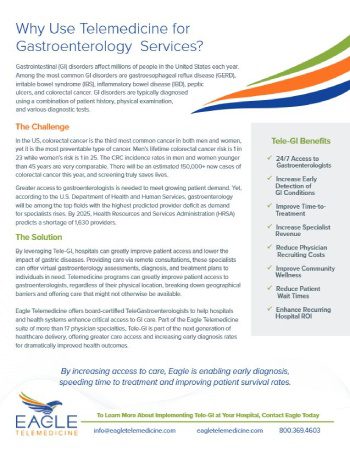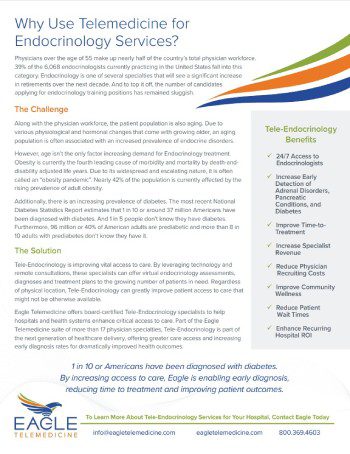Gastroenterology Telemedicine (Tele-GI) Services
By increasing access to GI care, Eagle is enabling early diagnosis, speeding time to treatment and improving patient survival rates.
Gastrointestinal (GI) disorders affect millions of people in the United States each year. By leveraging telemedicine specialists for gastroenterology hospitals can greatly improve patient access and lower the impact of gastric diseases.
Providing care via remote consultations, these specialists can offer virtual gastroenterology assessments, diagnosis, and treatment plans to individuals in need. Telemedicine programs can greatly improve patients’ access to gastroenterologists, regardless of their physical location, breaking down geographical barriers and offering care that might not otherwise be available. This approach also reduces the burden on on-staff specialists and in person clinicians while also enabling gastroenterologist specialists to reach a broader patient population.
What conditions can a Tele-Gastroenterologist diagnose?
- Esophageal Disorders
- Gastrointestinal Bleeding
- Pancreatitis
- Inflammatory Bowel Disease & Irritable Bowel Syndrome
- H. pylori & other Infections
- Microscopic Colitis
- And More
What type of care can the Tele-Gastroenterologist provide?
- Perform a full physical exam with the on-site nurse
- Order diagnostic testing as needed
- Identify specialty-related diseases
- Manage chronic diseases
- Direct necessary follow-up care
- Discuss diagnosis and treatment directly with patient

